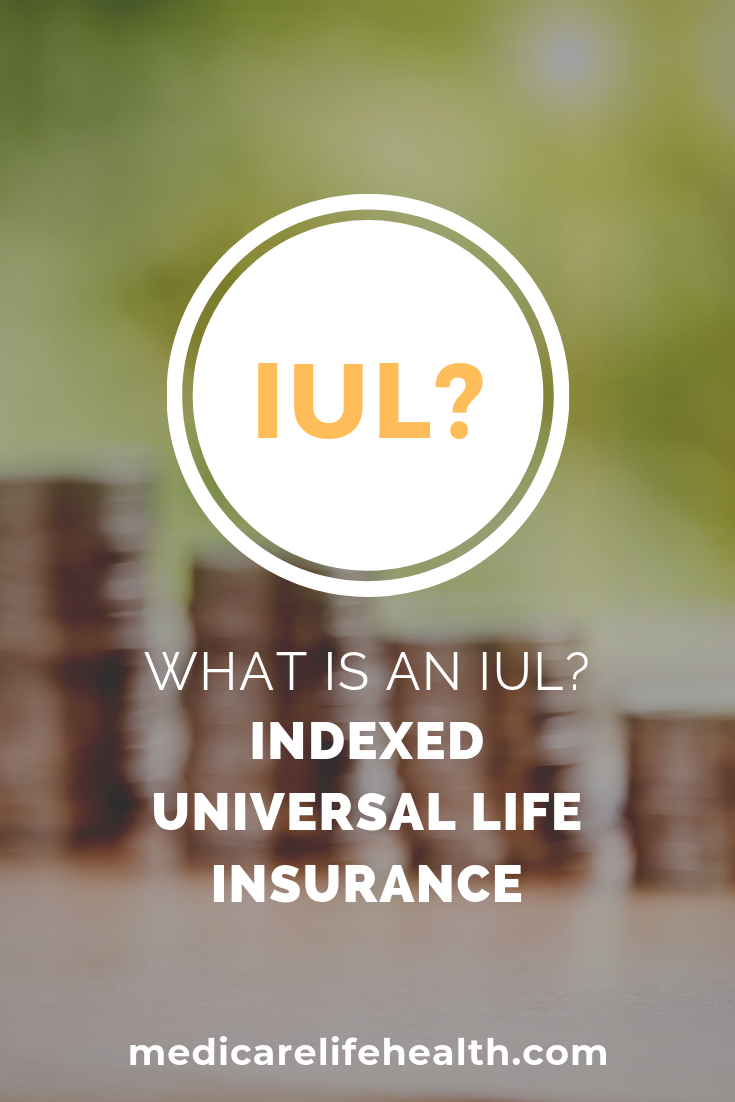What is Indexed Universal Life Insurance (IUL)? Do I Need One?
What is Indexed Universal Life Insurance (IUL)? That is a question we hear often as IUL’s have been increasing in popularity. I am sure we will hear it even more as they are expected to continue to rise this year.
They have become popular in our low interest bond market as an alternate way to grow savings fund conservatively for both retirement purposes and legacy purposes. However, not everyone needs an IUL. Let’s take a deeper look into what are IULs and who might need/want one.
What is Indexed Universal Life Insurance (IUL)?
An Indexed Universal Life (IUL) Insurance Policy offers insurance with a cash value in addition to a tax-free death benefit. Both the cash value and the death benefit are useful and attractive tax advantaged ways to provide for your family. The cash value can provide you tax advantaged income in retirement, and the death benefit can provide tax advantaged cash for your family when you die.
Premiums
IULs are structured so that premium payments cover not just the cost of insurance, but also the extra money needed to create and maintain the cash value of the policy. Each month the policy cash value grows with excess cash payments and interest. However, the policy is also debited by the cost of insurance and policy charges/fees.
Interest
The interest growth is tied to a financial index (like the S&P 500, Russell 2000, Nasdaq 100 and the Dow Jones) and usually with a minimum growth rate and a maximum (capped) interest rate. This allows participants to take advantage of market growth without having the threat of losing money. The tradeoff for this security is the growth cap. For instance, you might have a minimum interest of 2% and a cap at 12%. If the market loses money, you don’t. If the market grows 20% or 30%, you only see 12%.
The Flexibility of IUL
One of the main reasons, IULs are popular is their flexibility.
- Premium Flexibility – The premiums are flexible each month. There is usually a minimum and maximum you can feed into the policy each month. Staying within your contracted terms, this allows you to let the accumulated cash value help in paying the cost of insurance if you miss a month’s premium. However, the policy will lapse if there is not enough cash value to cover the cost of insurance and fees. (This is true with most policies, unless you have a no lapse guarantee rider.)
- Death Benefit Flexibility – You have the ability to increase or decrease your death benefit (subject to underwriting).
Do You Need Universal Life Insurance (IUL)?
Here are some reasons you might need an IUL.
- First, if you are looking for another avenue to bolster tax advantaged (tax-free) cash flow in retirement.
- Second, if you need to leave money after you die for final expenses, income replacement, debts, or estate taxes.
- Finally, if you need an alternative to long-term care insurance.
Let’s break each of these down.
IULs for Retirement Planning
Sometimes you need another revenue stream in retirement. You probably have your taxable accounts (IRAs, Pensions, Social Security, Investments) to draw from as one stream. In addition, you might have tax free accounts such as a Roth IRA (or Social Security if you keep your tax threshold low enough), but often times you need another vehicle to in this tax advantaged category.
This is where an IUL’s cash value comes in. You can borrow against this amount in retirement and the loan is considered a tax free event. This is an avenue is not just for the super wealthy, but if you are looking for a place to grow a lot of money conservatively, this is a good place. It is also a good way to manage your tax exposure in retirement. Are you interested in keeping your taxes as low as possible in retirement? I suggest reading the book, The Power of Zero by David Mcknight to learn more.
IULs for Survivor’s Benefits
These are the traditional reasons for taking out life insurance, and they all stand-up in an IUL. You can structure your policy so that your beneficiaries will receive a lump sum of cash that is not taxed by the federal government. You will need to plan to see how much of a death benefit you will need to leave to help your family in paying off your expenses (funeral, medical) and your debts. In addition, your beneficiary(ies) might need to replace your income after you pass or pay off big ticket items to maintain their lifestyle. Moreover, the death benefit can offer money to help pay estate taxes.
IULs for Long-Term Care Planning

Long Term Care Riders are a newer benefit of IUL policies. However, only some carriers offer them. Long Term Care Insurance can be very expensive… very, very expensive. Wrapping up the “cost” of insurance in an upfront IUL rider is one way to make it less painful. With an LTC rider, qualified long-term care expenses are paid using the death benefit before death. The insurance company pays what is left to your beneficiaries as a death benefit when you pass. Remember, Medicare doesn’t cover Long Term Care.
Action Steps
Now that you know what is Indexed Universal Life Insurance (IUL) Policy, here is what you can do next:
- If you have decided that you want an IUL or want more information on one, you should talk to a licensed insurance agent. IUL’s are complicated. In addition, each company structures them differently. This is not a product you can just “click to buy!.”
- If you have read through this article and thought, “not me” or “not now,” then I would encourage you to consider other alternatives to solve your planning problems.
- Investing: If you need a place to access cash that is not taxable in retirement, make sure you are maxing out your Roth IRA first.
- Insurance: If you need life insurance, but just not that much, check out final expense policies, or if you are younger, term life.


10 thoughts on “What is Indexed Universal Life Insurance (IUL)”